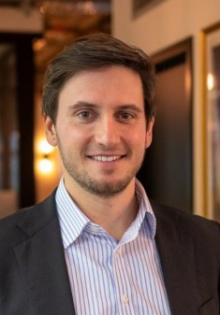Company emerges from research project: Paderborn University research group develops signal generator
From measuring and radar systems to telecommunications: huge amounts of data are being transmitted in ever shorter times nowadays. Precise signals are essential. If they are inaccurate, errors occur. In the "RadiOptics" research project, which was launched last June at the Heinz Nixdorf Institute at Paderborn University, scientists are therefore working on a signal generator that aims to reduce potential sources of error. A spin-off has now emerged from the project: QuSinus GmbH.
The partners are Prof Dr Christoph Scheytt, Dr Peter Hertenstein, Meysam Bahmanian and Saeed Fard. The scientists from the "Circuit Technology" specialist group at the Institute of Electrical Engineering and Information Technology are making a significant contribution to the success of the research project and are now also contributing their expertise to the company. "RadiOptics" is being funded by the EXIST research transfer programme of the Federal Ministry of Economics and Climate Protection (BMWK) to the tune of around 849,000 euros until November of this year. The programme supports outstanding scientific start-up projects from the initial idea through to commercialisation.
The generators are used, for example, in the development of new technologies and components. Project manager Hertenstein explains: "Signal generators are laboratory devices that are used as test equipment in product development. They are used in a wide range of applications, from computer technology to aerospace. The requirements are therefore correspondingly high."
"Our technology generates very precise signals in the high-frequency range. This significantly minimises phase noise, which can lead to transmission errors," explains Hertenstein. The prototype has already generated signals that are ten times more precise than comparable devices on the market. The scientist sees a wide range of potential applications: "Our vision for the future is to open up further areas of application. One of these could be in medical technology, for example."
QuSinus wins international competition organised by the University of Cambridge
With its technology, which enables unprecedented precision in the generation of signals, the spin-off has now been awarded overall victory in the international Wolfson Entrepreneurship Competition organised by the University of Cambridge. The start-up came out on top against more than 100 competitors from all over the world. Every year, Wolfson College's start-up competition recognises innovative ideas from students, researchers and alumni of the renowned University of Cambridge. Co-founder Dr Peter Hertenstein obtained his doctorate here.
The team is currently working on further developing its business idea in the accelerator programme of garage33, the start-up centre of Paderborn University.
Further information on the start-up QuSinus can be found at: www.qusinus.com.
This text has been translated automatically.

